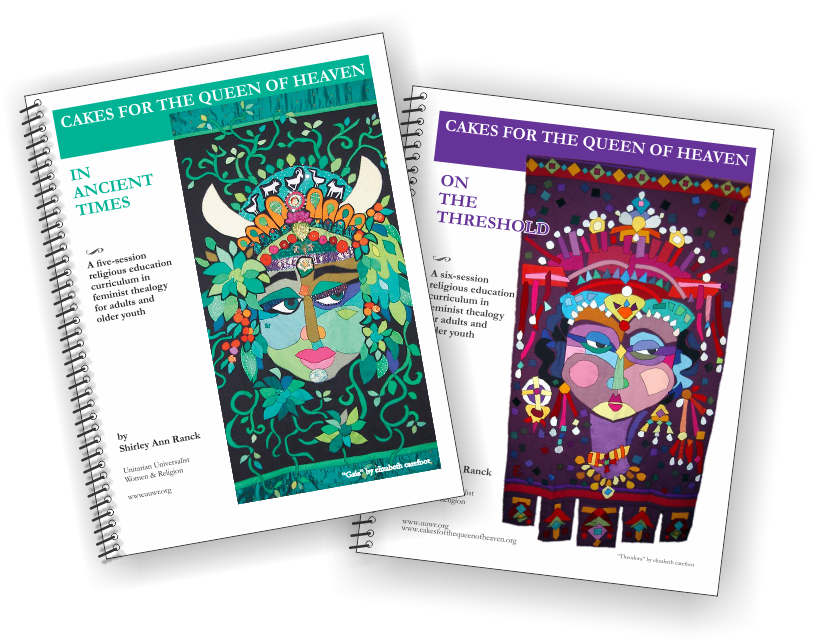Sugarloaf Congregation of Unitarian Universalists
May 9, 2010 Service Written and Led by Chris Hager
about
The Proposed Statement of Conscience (SOC) up for vote at the Minneapolis UUA General Assembly (GA), June 23 - 27
Editor’s Note: For the complete text, see www.uua.org/csw and click on revised Draft SOC ( “csw” stands for Commission on Social Witness)
Also, please, note that I have excerpted and adapted only the ending of Chris’ sermon. Helen Pop
I’ll be upfront about my own sentiments regarding peace. Although some Unitarian Univeralists may believe that lethal force is sometimes necessary, I believe that we have too many natural disasters that cause untold human and animal suffering, not to mention environmental distress without creating destruction. In fact, one of my favorite songs by Holly Near starts:“Why do we kill people who are killing people to show that killing people is wrong? What a Foolish Notion that War is called devotion when the greatest warriors are the ones who stand for Peace.”
Peacemaking is a Unitarian and Universalist Value
I do agree with the proposed final SOC that Peacemaking is grounded in our theological principles. For over 200 years, Universalists and Unitarians have worked to build peace and remove the underlying causes of war. As early as 1790, Universalists gathered in Philadelphia to declare “There is a time coming when the light and universal love of the gospel shall put an end to all wars.” Unitarians Noah Worcester and William Ellery Channing founded the Massachusetts Peace Society during the War of 1812 to affirm that nonviolence is humanly possible and divinely commanded.
In the words of the 1870 Mother’s Day Proclamation by Unitarian, Julia Ward Howe:
“Arise then, women of this day!
Arise, all women who have hearts.” Julia Ward Howe changed her views after seeing the effect of the Civil War. The Mother’s Day Proclamation continues:
“WE, the women of this country,
Will be too tender of those of another country
To allow our sons to be trained to injure theirs.”
We UU’s have, also, called upon the teachings of Jesus of Nazareth, the Mahatma Mohandas K. Gandhi, the Buddha, Siddhartha Gautama, and the Reverend Dr. Martin Luther King, Jr. to prove that peacemaking can be viewed as grounded, not only in our history, but, also, in our values up to modern times.
The Fundamental Unity and Interdependence of All Existence and the Transforming Power of Love
The Background and Reasons for Study of the Peacemaking proposed SOC noted that: as the human population has increased there has been a corresponding increase in contact between groups of people who were largely isolated from one another in the past. This contact, coupled with differences in politics, religions, moral values, and beliefs as well as economic injustices and competition for resources, have led to countless conflicts around the world. Humankind struggles to achieve peaceful coexistence economically, socially, politically, and spiritually.
So – we, and humankind, have a choice – to build bigger barriers, engage in increasingly more destructive conflicts or recognize that as the interdependence of individuals, communities, and nations has become a more apparent reality, we could see everyone as our neighbor and Standing on the Side of Love, as our new slogan attests.
The Inherent Worth and Dignity of All Persons. Many of us believe that this principle is at the core of what we believe. The SOC notes: “All human beings have the right to a meaningful and fulfilling life, including physical safety and economic and social well being. All of us have the responsibility to work on the behalf of the dignity of others.” So, why is it that we kill people who are killing people to prove that killing people is wrong?
It seems to me that making peace takes much greater skill, compassion, and love than making war. And it is far less costly, in dollars, in human lives, in property. Since 2001, we have spent close to $1 trillion on the wars in Iraq and Afghanistan – over $750 billion for Iraq and about $275 billion in Afghanistan, not to mention the more than 5,000 American lives that have been lost or harmed. At the same time that we wonder whether we have the will and the resources to pay for Health Care for All – that doesn’t make much sense to me. We devote so much less attention and resources to developing skills of nonviolent action, conflict resolution [or management], and peacebuilding than building stronger war toys and weapons of mass destruction. And just how many innocent Iraq and Afghan lives have been lost is not at all clear – people who were killed because they lived in harms’ way. We could be committing our resources to protecting the physical safety and the well being of all people if we truly believed in love and the worth of each individual.
Another fundamental value is the rejection of the sharp separation of good and evil. Most of us reject the [dualistic] notion that individuals and nations are either all bad or all good. Examining our own and others’ capacity for goodness and for evil means we have to deal with ambiguity and disappointment. Our trusted leaders, even those who profess to stand for peace, take actions we do not necessarily like or see to be getting us much further toward peace. But what can we do – are we innocent by-standers too, like the lost lives of innocent Afghan and Iraqi civilians? Are we standing strong enough for peace?
The study of peacemaking calls on us to recognize how complex human and international relationships are. Because power can be used to create or destroy, to liberate or to oppress, preventing war and creating nonviolent alternatives requires a commitment to mutual persuasion over coercion. Real leaders, like MLK and Mahatma Ghandi, and at times, Barack Obama, work to make the world a more peaceful place by working cooperatively with others and with other nations, to achieve a mutual commitment to nonviolent solutions.
Our principles: To affirm and promote Justice, Equity, and Compassion in human relations and The Goal of World Community with peace, liberty, and justice for all speak directly to “the fair ordering of human relationships, including social and political relationships." War signals the breakdown of fairly ordered human relations. Peace is a process, not a stagnant state. Lasting peace rests on just relationships. It also calls on us to remain open-minded, humble, and to deal with uncertainty. Peacemaking certainly calls on each of us to persevere, be diligent, and to deal creatively in our relationships.
Closing Words:
In reverence for all life, we covenant to practice peace at all levels of human interaction. Shalom. Amen. Blessed Be.
Editor’s Note - In 2006, Delegates to the General Assembly were presented with this issue for study till June of this year:
Should the Unitarian Universalist Association reject the use of any and all kinds of violence and war to resolve disputes between peoples and nations and adopt a principle of seeking just peace through nonviolent means? Now, at this upcoming GA the delegates from all UU congregations will vote on this issue. In a meeting of local UU movers and shakers, Chris learned there’s an organized effort to defeat this proposed SOC. The peacemaking statement challenges us to think about whether our principles and actions are in agreement. Our principles are models for peacemaking. But, have we UU’s acted as if violence is more effective than nonviolence in certain situations? Should room be given for this allowance? Or should we stand strong like Quakers? Helen Pop (along with excerpted thinking of Chris Hager)
Chris' May 9th service Opening Words:
Reading: The opening words and this reading are from Unitarian Universalist
Statement of Conscience on Peacemaking (which will be voted on at the General Assembly (GA) in Minneapolis June 23-27
First - Our commitment to creating peace calls us to the work of peacebuilding, peacemaking and peacekeeping.
Peacebuilding is the creation of institutions and structures that address the roots of conflict…
Peacemaking is the negotiation of equitable and sustainable peace agreements, mediation between hostile parties and post-conflict rebuilding and reconciliation.
Peacekeeping is early intervention to prevent war, stop genocide and monitor ceasefires. Peacekeeping creates the space for diplomatic efforts, humanitarian aid, and nonviolent conflict prevention through the protection of civilians and the disarmament and separation of those involved in violent conflict.
Second - We advocate a culture of peace through a transformation of public policies, religious consciousness, and individual lifestyles. At the heart of this transformation is the readiness to honor the truths of multiple voices from a theology of covenant grounded in love.
Third - We affirm the right of individuals and nations to defend themselves, and affirm our responsibility to protect our neighbors from aggression.
Fourth - We repudiate aggressive and preemptive wars, the disproportionate use of force, and the targeting of civilians. We support international efforts to curtail the vast world trade in armaments and call for the ultimate disarmament of nuclear weapons and other weapons of mass destruction.
Fifth - For Unitarian Universalists, the exercise of individual conscience is holy work.
Conscientious discernment leads us to engage in the creation of peace in different ways. We affirm a range of individual choices, including military service and
conscientious objection (whether to all wars or particular wars), as fully compatible with Unitarian Universalism. For those among us who make a formal commitment to military service, we will honor their commitment, welcome them home, and offer pastoral support. For those among us who make a formal commitment as conscientious objectors, we will offer documented certification, honor their commitment, and offer pastoral support.
Sixth - Our faith calls us to create peace, yet we confess that we have not done all we could to prevent the spread of armed conflict throughout the world. At times we
have lacked the courage to speak and act against violence and injustice; at times we have lacked the creativity to speak and act in constructive ways; at times we have condemned the violence of others without acknowledging our own complicity in violence. Too often we have allowed our disagreements to distract us from all that we can do together. This Statement of Conscience challenges individual Unitarian Universalists, as well as our congregations and Association to engage with more depth, persistence and creativity in the complex task of creating peace.
Final Editor’s Note – As inspired by Carol Lee Flinders’ Rebalancing the World (a resource for facilitating “Cakes for the Queen of Heaven”), peacemaking is more basic than a responsibility for all humans to follow. Peacemaking is a natural human urge prevalent in the days of the Belonging Values before the human will to control kicked-in. -- Helen Pop



